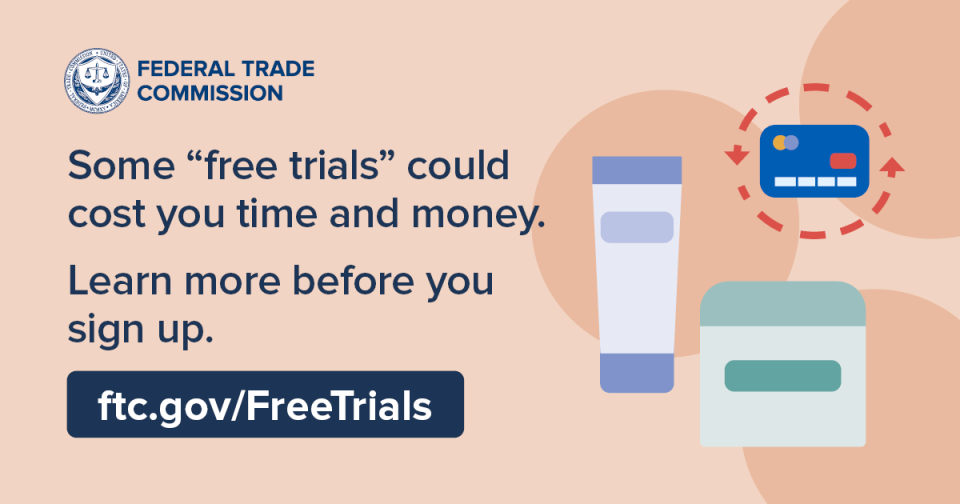You're online and see a chance to try a new skin cream for free. You might think: why not? Well, for starters, that free trial might not be free at all.
That’s what happened with a Puerto Rico-based marketer that advertised “free” skin products for a $4.99 “shipping and handling” fee, according to the FTC. But, says the FTC, what people didn’t know was that they’d be charged if they didn’t cancel in 14 or 15 days. And the company would charge them more than $90 for the cream. And enroll them in monthly subscriptions. And cancelling wasn’t easy, the FTC says.
Now, the marketer will turn over close to a million dollars in assets to the FTC to give partial refunds to affected customers.
Before you accept a free trial offer:
- Search for the company online. Look up the name with the words “scam” or “complaint” and see what other people are saying about the free trial offers.
- Look for information on how you can cancel future shipments or services. If you don't want the product or service anymore, how do you cancel? If the process isn’t clear to you, don’t sign up.
- Watch for pre-checked boxes. Some might give the company permission to keep charging you. Uncheck the box if you don’t agree with what it says.
- Learn more about getting in and out of auto renewals and negative option subscriptions at ftc.gov/FreeTrials.
Got a problem with a “free trial”? Dispute unauthorized charges with your credit or debit card immediately and tell the FTC at ReportFraud.ftc.gov.


With ANY online ad, ALWAYS research the company first! Most are in China. Don't believe the comments that express how great the product is! Most are from hacked accounts!
Nothing is free. There is always a cost, even if it is hidden.
Hello
Always read the fine print which most don't and if it sounds too good to be true it usually, and almost always, is (a scam).
Very, very good advice.
Thanks very good information, everybody is scamming to day at time very hard to see the fine print or deception of what is what.
Thanks
So many vitamin companies and hair products do exactly the same.
Does this include any other skin care free trials that were similar scams such as Almay or SkinGlow? I keep getting calls that I owe them for the 'rest' of the product even after canceling over a year ago.